It’s not uncommon to find singles who have extended such expectations to every part of their lives. They include how many kids they will have, where they will live, what kind of career they have, and more. The list of rules their life is supposed to follow is quite long if not endless. Well, I’ve got just one thing to say to that. Your rules are dumb. Make rules for you Setting rules for how life is supposed to proceed establishes expectations. And that’s a problem, especially where other people are involved. Everyone is so imperfect that you’re almost certain to be disappointed. I know that sounds cynical. I’m not trying to be. Successful people take the world as they find it, not as they wish it would be. That means seeing things as they really are and calling them out. Expecting people to act a certain way so your life can unfold according to your fantasy is just dumb. Instead of establishing rules for how others should act, make rules for how you should. Others will almost certainly disappoint you, but you can choose not to disappoint yourself. You can work towards your best life by becoming your best self, and you do that by exercising the discipline to conform to rules that your best self would follow. That process of struggle as you seek to change not just your behavior but your identity fuels the growth for the transformation into your best self. Leverage life’s little surprises Your rules for how your life should proceed are dumb for another reason. By staking out an expectation of what will or even should happen, you cut off all other possibilities from being acceptable. And that removes much of the beauty your life could have. Life is wonderful not because it conforms with some plan of perfection but because of possibility. Variety and spontaneity are the spices of life because they highlight possibilities. It’s the possibility of surprise that helps make it interesting. Of course, some of those surprises would be more interesting if they didn’t invade your life. For example, my place recently flooded for the third time in the last two months. A surprise to be sure, but I don’t wallow in playing the victim. I choose to leverage the event to fuel my drive to improve my situation. Those improvements require me to think creatively about possible solutions and to work hard to realize them. If I insisted that my place wasn’t supposed to flood because that’s not how my life is supposed to be, I’d cut off the creativity I need to find solutions. I’d spend far too much time focusing on the problem, which creates a reality filled with problems. I’d miss out on how beautiful my life could be by truly living it — taking it by the reins and making it the best it can be. Open yourself to possibility What would happen if you suspended your rules and opened yourself to possibility? Instead of insisting that your life proceed according to some pre-determined expectation, what if you had the humility to embrace an alternative? I recall in a previous ward receiving an invitation to dinner. The family had invited another family to join us. As we waited for the women to finish preparations, the children were playing outside, and we men were conversing. Speaking of his wife, one of the men said, “I never thought I’d be happy with a red head, but I am.” When single, he expected he needed to marry a blonde to be happy. What he found by releasing that expectation and embracing possibility was true happiness found not in what he had but in what he gave. And the life he described living was truly beautiful. Your rules are dumb. Let go of the expectations that life must unfold a certain way in order for it to work for you. Your life will work for you when you do the work your best life requires. And that will bring your more joy in your journey.
0 Comments
Why we wear masks Masks conceal one’s true identity, allowing that person to act differently without incurring the consequences of having those different actions connected with one’s reputation. That’s why Batman wears a mask — to protect those he cares about from his enemies who would harm them to get to him. That’s not necessarily nefarious. That allows a freedom that couldn’t be found with concern over the consequences of one’s actions. And that’s the key: concern over consequences. You need the mask so others won’t connect what you do with your reputation. But if you were willing to accept whatever consequences came from your actions, you wouldn’t need the mask. You could simply live as you would while others have full view of who you really are. We naturally shy away from such circumstances. We all have a deep-seated need to belong, and it’s easier to belong when you do what everyone around you does — or what everyone around you expects you to do. Wearing a mask allows you have one identity you present to others so you conform to their expectations while in reality holding a different identity that would incur consequences from others if only they knew about that different identity. The application to self  I’m not suggesting all masks are bad. Who doesn’t like Batman? I’m just saying we need to concern ourselves with how we use masks. We need to understand what we’re really doing with the masks we choose to wear. We need to live with intention. As I apply that principle to myself, I see the need to put away a mask I’ve been wearing for myself. I’ve thought of myself as a solid performer in my work, someone who always delivers. But recent experience suggests otherwise. I may have never failed to deliver in a previous time, but times have changed. What happened? I’m not entirely certain. I think part of it is my singleness. Without needing to perform at a higher level needed to support a family, it’s been easier to accept performing at a lower level while maintaining within my psyche an identity that differs from reality. I’ve been wearing a mask so I can feel better about myself. This is one mask I don’t need to wear, because wearing it means living a lie. It’s better to live in truth and embrace who I really am, an imperfect man who experiences setbacks but who also has the potential to rise above those setbacks and conquer whatever challenge lies before him. Embracing that truth means true freedom, because that embrace allows me to live without concern for the consequences of others seeing me as I truly am. Living life in truth What masks do you wear? Have you established for yourself a space of false security so that others will think about you in a certain way or so that you can feel good about yourself? How about having others think about you in that way because you really are that way? How about feeling good about yourself by embracing who you really are? Many of us wear a mask we shouldn’t be wearing. Let’s embrace changes in ourselves so we can really see ourselves as we should be, or let’s embrace our actual self as our ideal. Acquiring and maintaining that match produces self-esteem. Combine that with living with intention, and you’re on your way to your best life. Leave the mask alone. Embrace the freedom that comes from embracing truth. You’ll feel better about yourself, better your life, and better about your future. And that will bring you more joy in your journey.
Many singles hold to that assumption under the guise of having standards. They seem to see themselves acting nobly in a chaotic dating world by adhering to their standard that insists on only the best. But such standards actually impede progress in one’s dating journey. So if you insist on believing you’ll be happy only with the most attractive companion, then you’re letting your standards keep you single. The falsity How does one progress in dating? As I discuss in my upcoming book about dating, to progress to each next stage of the journey, you must make an agreement. No agreement means no progress. Period. In the first stage of the dating journey, you meet new people and build friendships. In the next stage, you casually date candidates you’ve befriended. These activities require openness to social interactions. Otherwise, you’ll likely never get the agreement you need to progress from friendship to casual dating and on to exclusive dating. But assuming you can be happy in life only if your partner is the “best” or most attractive type limits those interactions. That faulty assumption will encourage you to engage only with those who meet your standards, because what’s the point, after all, in “wasting your time” with people who simply won’t do romantically because they aren’t the “best”? God’s plan  Mathematically, it just isn’t possible for everyone to have the “best.” Yet many singles cling tenaciously to the hope they’ll be one of the few to score just such a life partner. After all, no one wants to accept an unhappy and unfulfilled life. But happiness in marriage doesn’t come from what each partner has. Happiness in marriage comes from what each partner gives to each other. And what you give is a choice. If your partner has to be the “best” or most attractive sort for you to be happy, then God must have really messed up His plan. Check out these words from then Elder Gordon B Hinckley.
How can God’s plan provide happiness for all His children if 90% of people aren’t the “best” but just ordinary? Mathematically, 90% of singles can’t each have monogamous marriage with someone from the top 10%. At least 80% of singles will be left unhappy if only the “best” makes a happy life. Because God wants all his children to be happy, clearly happiness must be available without having the most attractive partner. The truth  And happiness is available to those couples who place honoring sacred covenants above personal desires by giving themselves fully to each other. Your companion doesn’t need to be the “best” or most attractive for you to give all of yourself to that person. Granted, it’s more easy to do the more attractive your companion is, but it’s not essential for happiness. The resistance many feel when confronted with such a choice is the natural man or natural woman in each of us. The natural man and woman value self-gratification more than making and keeping sacred covenants. Covenant men and women obviously reverse that value system. I’m not saying we’re interchangeable parts. You shouldn’t marry just anybody, and having standards does help with decision making. Far too many LDS singles, however, insist on standards around what really isn’t essential for lasting happiness. Elder Gerrit W Gong has taught,
Regardless of how you justify it, when you insist on having only the most attractive type of companion, your standards keep you single. Lowering those standards to accept more candidates into your dating pool doesn’t mean sacrificing happiness. Rather, it increases your chances of obtaining it. So reject the natural man and woman, open yourself to possibility, and you may find the blessings you’ve been seeking have been right in front of you all along. And that will bring you more joy in your journey.
 If you’re struggling with LDS singles life, and particularly with dating, then you need to examine your attitude and your approach. Your results in life always come from what you do. And what you do inside yourself (your attitude) and outside yourself (your approach) comes from your choices. We’re all choosing the life we want. Many LDS singles without the life they want need to adjust both attitude and approach. We touched on some aspects of a more effective approach two weeks ago when we discussed the proper role of revelation in dating. Then last week we addressed aspects of a more effective attitude. Neither of these discussions was comprehensive, but they do contain good starting points for positive change. Here’s another aspect of both attitude and approach: Many LDS singles make assumptions about their world which their habits then use as the basis for action. But it’s like the old saying goes — garbage in, garbage out. A more effective attitude and approach begins with more effective assumptions. Everything goes back to the way you think. That’s why a periodic reformat and reboot is good; you need to step back, examine your assumptions, and clear your head of anything faulty or less effective. Question your assumptions  Sometimes what we think is significant really isn’t. Many LDS singles reject opportunities for success because their assumptions about what was important or even essential guided them along a different path. Their assumptions blinded them into thinking what really was an opportunity wasn’t an opportunity. For example, most singles think the age of their special someone is within 5-6 years of their own. Why? Because they assume that’s what they should want. But often it’s not experience guiding them to adopt that assumption; they’re just being good “sheeple” in following the herd. Thankfully, President Hinckley’s parents didn’t follow that assumption. They were separated by 13 years of age. And their union produced a prophet! Life will never fully unfold for you until you start questioning your assumptions. When you let go of what you think you need but really don’t, you open yourself to more possibility. And that increases your probability of achieving success. Don’t discount the good  Many LDS singles interact with other singles only insofar as it serves their agenda. Once someone no longer serves their agenda, they cease all interactions with that someone. This faulty approach is itself based on faulty assumptions: Spending time and money on people who won’t progress with you towards marriage is a waste. That assumes people matter only insomuch as they help you achieve what you want. In the end, all that really matters is getting the goal. When you spell it out, it’s not hard to see how ridiculous those assumptions are. People have inherent worth as children of God. Everyone matters. Yet many of us don’t have the self-awareness necessary to realize how ridiculous our own assumptions are. Yes, lovers should be friends first. But friendship alone has intrinsic value. Who couldn’t use more support in facing the challenges of LDS singles life? Every relationship you have, romantic and otherwise, offers knowledge and experience that can help you have a better relationship with that special someone when that person comes into your life. By discounting the good many potential friends have to offer, you make life harder than it needs to be. And you might be staying single longer than needed as well. Look for the flecks  Elder M Russell Ballard once told the story of a young man who went to California during the Gold Rush to seek his fortune. He eagerly panned for gold nuggets like the ones he had heard about before coming west. But after weeks of effort, he had found nothing. Then one day he met an older gentleman who had spent many days prospecting and found enough gold to fill a small bag. The young man was discouraged to learn that gold was not the nuggets for which he searched but rather many tiny flecks. After hearing his discouragement, the older gentleman responded that those flecks had made him a wealthy man. If we assume the eternal companion we seek is a gold nugget, then we may be joining that young man in disappointment. Most people aren’t gold nuggets; they have imperfections aplenty. Yet they also have flecks of gold mingled among those imperfections. Choosing to give those gold flecks more weight than the imperfections can make us wealthy indeed. When you clear your head of faulty assumptions, you can more easily meet with your success. Embracing all experience opens the door of possibility, increases your probability of success, and helps you to find much more than you ever imagined you could. And that will bring you more joy in your journey.
 Last week we discussed President Nelson’s remarks from the most recent General Conference about increasing the revelation we receive in our lives. By following the Prophet’s counsel, we can find answers to questions and solutions to challenges. Many LDS singles rightly seek revelation during their dating journey. However, many become their own worst obstacle when they seek too much revelation too soon. These singles ask the obvious question: Is this person “the one”? That question seems appropriate for exclusive daters contemplating engagement. But many ask that same question before they get anywhere near the Exclusive Dating stage. They’re in the Casual Dating stage or even still in the Friendship stage. I understand why they do it. They don’t want to waste their time with someone who ultimately won’t give them what they want — a temple marriage. And they don’t want the emotional pain of heartache after investing in a relationship that dies. But I also understand why this approach turns LDS singles into their own worst obstacle. Enthrone friendship  So much of the thinking in LDS subculture is binary. Everything’s either good or bad, black or white. There’s no room for gray. This narrow perspective drives LDS singles to see every dating prospect in extremes. Everyone is either potential marriage material or an acquaintance. Why waste time and money, the thinking goes, on someone who won’t be with you in the end anyway? It’s little wonder we don’t really know what friendship is anymore when we discard further association with others once their failure to satisfy our personal agenda becomes evident. Getting to know other people is never a waste of time. Who couldn’t use more support while traveling the road of LDS singles life? Cutting off association with others once all hope of romance dies sends the message that our worth comes from our ability to provide marriage. Yet our worth really comes from our status as children of God. Building genuine friendship with others — especially when they can’t really help us any — is the mark of a true friend. And more true friends means more support when relationships we do hope will work out don’t. Respect timing  Asking “Is this the one?” too soon introduces excessive seriousness in our dating journey. Everyone retracts, becoming extremely cautious about everything they do because they don’t want to be tied to any undesirable commitments. And that restricts progress in our dating journey. We also tend to misinterpret our experience with revelation when we ask such a serious question too soon. What will be the answer to such a question? More often than not, it’ll be “No.” We then assume that means this person isn’t “the one” and proceed to sever all relations. In actuality, it’s far more likely that “No” simply means “No, you’re going about this all wrong.” I once met an attractive woman at a singles conference. We really seemed to click. But a couple of emails later, she told me she prayed to know whether I was “the one” and God told her to stop talking to me. Please! Revelation properly used in dating is about confirming choices we make, not instructing us with what to do. Her choice was in no way informed. We never went on a single date! And what resulted from her choice? No one won. Both of us remained single longer than we needed to be, and neither one of us gained a new friend. In many ways, we really are our own worst obstacle. If only we could get out of our own way! Be where you are  We can promote rather than frustrate our progress in our dating journey by respecting where we are. Before the Exclusive Dating stage, there’s no elevated commitment level. Any commitment between people dies with the end of the date activity. With such low levels of commitment, asking a very serious question like “Is this the one?” has no place until time with the more serious commitment of the Exclusive Dating stage prompts consideration of progressing even further. No wonder the answer to that question asked too soon is more often “No.” The Lord is trying to tell us, “No, you’re going about this all wrong!” Why can’t we just focus on where we are in our journey and enjoy that place? Dating is supposed to be fun, and it can be when we set aside our expectations, enjoy getting to know others, and build friendships rather than rushing everything towards the end goal. Don’t be your own worst obstacle. Save serious questions for later stages of the journey when the level of commitment demands that level of seriousness. When you do, you’ll free yourself to enjoy more every part of dating. And that will bring you more joy in your journey.
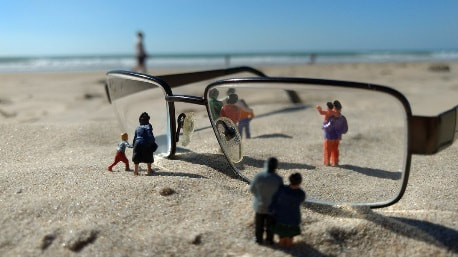 Dating doesn’t have to be so challenging for LDS singles. Once you have a good map of the landscape and know how to use it, your journey improves substantially. Many LDS singles who lack that understanding often prove to be their own worst obstacle. Too often they put the cart before the horse by insisting that potential dates meet their standards for marriage. This practice fosters a culture in which dating is viewed as synonymous with marriage. Dating then becomes warped in LDS singles life. That’s not the only way many LDS singles put the cart before the horse. When considering whether to date someone, they often look at potential candidates and assume they’ll always be just as they are right at that moment. If someone is found to be undesirable, it’s then easy to say, “I don’t want to spend eternity with that” and walk away. In so doing, LDS singles often walk away from the very blessings they seek. In considering dating opportunities, we should consider not just position but also direction. We need to see others as they may become. Direction is more than position 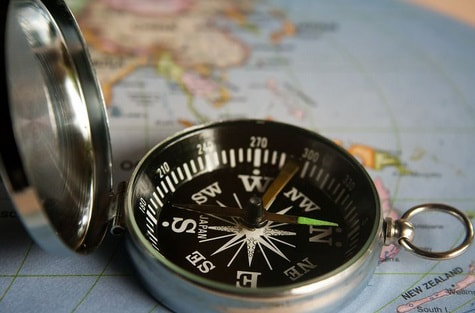 We came to this mortal existence to grow and become like our Heavenly Father. Traveling on this path towards perfection means that none of us are perfect as we are now. Yet our Heavenly Father doesn’t condemn us for not having yet completed our journey. He knows we’ll eventually arrive at our celestial destination if we maintain the proper direction. And He knows we can always change our direction. “Judge not, that ye be not judged” is the Savior’s teaching (Matthew 7:1). Yet how often do LDS singles fail to apply that teaching to their dating considerations? We confuse position and direction, thinking that person will always be just as we find them now. For example, most aren’t attracted to overweight suitors. Yet being overweight is merely position. What consideration do we give direction? There’s a world of difference between the overweight person trying to lose weight through diet and exercise and the overweight person doing nothing about it except crying over why no one wants to love them as they are. The Atonement by its very existence signals the potential for change. Truly believing in that potential means affording more weight towards direction than position when considering dating options. Potential to change is not change  According more weight to direction doesn’t mean ignoring position. For example, perpetrators of physical abuse can change, but that doesn’t mean you should trust them just because they can change. Potential for changing direction is not the same as actually changing direction. Our actions determine our direction. What we do every day determines whether we end in one destination or in another. And small changes today can result in large differences tomorrow. A truly reformed physical abuser will refrain from physical abuse. Repeat offenders are not reformed. They still have the potential to change, but their actions show they haven’t actually changed. Their direction is askew, and in the interest of personal safety, you’d be justified not dating such a character. On the other hand, a physical abuser who has refrained from physical abuse has a better direction. That person’s actions demonstrate a change in direction has taken place. Both always had the potential to change. But the difference here is one’s actions evidence a change in direction and the other’s don’t. Embrace multiple experiences  That’s why you should experience multiple casual dates with someone before deciding on the potential for a committed dating relationship with said person. For most aspects of an individual, you can’t judge appropriately with just one date. You need multiple experiences. Allowing that can help you give that greater weight to direction over position. Without that, it’s much easier to see only position and use that alone as the basis for dating considerations. No one’s perfect in this life. We’ll all miss the mark somewhere. But that doesn’t mean we always will. Our actions today can add to a body of evidence showing a more positive change in direction. And with time that body of evidence can demonstrate a more positive direction, which will make you more attractive to potential dating partners. Learning to see the potential in others can reveal doors of opportunity you didn’t before realize existed. Because no one’s perfect, the eternal companion you’re seeking isn’t perfect. Learning to value others for what they may become because of their direction may help you see that the person who you thought would never do as a companion actually fulfills your needs more than you could imagine. Tolerating imperfection can actually help you find your true love. And that will bring more joy in your journey.
 Last week we looked at the importance of being where we are in our dating journey. That means applying dating standards to potential dating partners, not marriage standards. Thinking about marriage when considering a casual date is like putting the cart before the horse. No wonder LDS dating is so difficult and confusing for so many! Applying marriage standards to dating isn’t the only way LDS singles trip over their own feet when dating. Too many test their dates during the date. This practice prevents living in the moment. And you can’t fully enjoy the moment if you don’t live there. I know what many of you are thinking. How can we know whether or not to go farther with our dating partner if we don’t test? I’m not saying don’t test. I’m saying there’s a time and place for everything, and the date is not the time or place for testing. We test best after the date, not during. Watch your broadcast  We all broadcast our inner self to those around us. If you test your date during the date, you have an agenda, and you’ll be broadcasting that. Most people will pick up your broadcast, usually to negative effect. That shouldn’t be surprising. Most people want to be loved for who they really are and not part of some agenda or project. When you test your date during the date, you broadcast you don’t really care about your date as a person but rather as a means to an end. One of two things typically happens. First, not wanting to be filler material, your date could withdraw from you. If your date could’ve made an excellent companion for you, then you just shot yourself in the foot. You just extended your singles life. Congratulations! And the other possible outcome? Your test makes your date far more nervous and anxious. He or she knows, in order to go any further with you, he or she must pass your test. But not knowing exactly what the right response is or even what the test itself is, your date will likely bumble his or her way through the date, leaving you with a false impression of who they are. And that could very well lead you to make the wrong call. Learn from others  I once knew a woman who was in many respects a perfect companion for me. So of course I was interested in knowing her better. After a few texts and emails, we went out a few times. Yet in all our interactions, I couldn’t escape the feeling she was testing me. That feeling was especially strong during our dates. I kept trying to put on a good performance without knowing what she wanted to see or hear. All the while, I never really enjoyed our time together because I never could. I was always worried I would say or do the wrong thing, and it would be one too many wrong things, leading her to say “Thanks, but no thanks.” In the end that’s exactly what happened. She simply walked away. The last I saw of her was at a singles activity. She came with some guy I’d never before seen. And after months of non-response, she suddenly started talking with me as though we were best friends. Even here she was still testing me. After hearing an clearly unwanted answer to a question about my employment (at the time I was between jobs), she walked away. I never saw or heard from her again. You must risk  Some might say this experience proves we weren’t meant to be together. My own experience tells me we would have been good companions for each other. I don’t know what happened to her, but I hope she got what she wanted. I can understand her perspective. Her divorce was particularly painful, and she wanted assurance she wouldn’t experience that pain again. That’s completely understandable. Yet love is such that you must risk in order to get reward. You can’t get the relationship you really want without making yourself vulnerable. I wish she could have let go during our dates and just enjoyed my company. Even if things still didn’t work out, we might have been friends. Don’t test your dates during the date. Just be yourself and enjoy what the other person has to offer. You can evaluate your date after the date. Then is the time when you can thoughtfully consider whether going further with this person is a good idea or not. When you’re interacting with others, be present in that moment. Doing so will allow to experience all the joy that moment has to offer. And that will bring more joy in your journey.
 Last week we discussed the need for LDS singles to expand their casual dating pools to include everyone — well, almost everyone; jerks, stalkers, and criminals need not apply. Many LDS singles resist expanding their casual dating pools because they inappropriately pre-judge potential dating partners by filtering for marriage material. Superficially, that seems to make sense. Dating leads to marriage, and we don’t want to end up with someone we don’t really want. Plus spending all that time and money with someone who won’t be with you in the end seems wasteful. Isn’t it better not to start if you won’t finish? This logic prevalent among LDS singles keeps many of them single longer than needful — in some cases, much, much longer. Here’s a more effective approach: Apply standards to where you are in your dating journey. Don't reject a date based on your standards for marriage. Reject a date based on your standards for dating. Know where you are Effectively applying standards to dating requires you to understand where you are on the map of your dating journey. With that in mind, let’s review what we’ve learned recently about the stages of the dating journey.
Know your next step You don’t need a map to know where you’re going. But a map becomes very useful to tell you how to get there. Understanding the different stages of the dating journey helps you know where are on the map. That begs the obvious question: How do I get where I want to go? You don’t climb a mountain by constantly staring at the peak. You climb a mountain by looking where your feet you are and taking a step forward. Your focus, then, should be on the next step in front of you, not the end goal. Once you know where you are in your dating journey, your next step will be to secure the agreement for the next stage. If you don’t have the necessary agreement, you don’t progress. Period. That’s why this is your next step. Be where you are That’s harder to do when you’re staring constantly at the summit and never on where your feet actually are. How long will it be before you trip and land on your face? Many LDS singles find dating disagreeable because that’s exactly what they experience. They keep tripping and landing on their face. If that’s your experience, here’s some free advice: Stop looking at the summit! Be where you are. If you focus on where your feet are and take the next step directly before you, and then the next one, and so on, eventually you’ll climb the mountain. So focus on where your feet are: Apply standards of dating to dates. This of course means you might date someone you wouldn’t marry. So what? That’s perfectly normal; everyone dates people they never marry. Only by dating lots of people will you better know that right type of person who demands more serious consideration. Because you’ll date people you’ll never marry, your standards will change with each stage of the dating journey. You’ll casually date people you won’t commitedly date. And you’ll committedly date people you won’t marry. Recognizing these truths makes it easier to be where you are. You can better enjoy someone’s company irrespective of whether or not you’ll marry that same person when you focus on that moment rather than on some agenda to achieve a future goal. Applying standards of dating to dating helps you to be in the place where you are. This in turn helps you to live more fully in the moment and makes you more attractive to someone who can help you be where you want to be. And that will bring more joy in your journey.
 Recently I’ve been considering how I arrived where I am today. I remember a really dramatic episode from several years ago involving a woman I loved with all my heart. I was in my mid-30s and considered her as my last chance to secure the blessings I’d been wanting for over a decade. Everything seemed OK until my rose-colored glasses could no longer obscure the truth. She called to tell me she was seeing another guy. I still held hope things could turn around. After all, we’re supposed to believe in miracles, right? Only deep down I didn’t really believe a miracle would happen for me. Instead I felt desperate. It seemed my last hope was slipping away from me. I kept thinking about what I didn’t want to have happen. So what happened next shouldn’t surprise anyone. She called on my birthday to say she was engaged to be married in two weeks. She knew it was my birthday because earlier she sang “Happy birthday” into my voicemail. As if stabbing me through the heart wasn’t enough, she twisted the knife by bluntly telling me I wasn’t invited to the wedding. The excruciating emotional turmoil that ensued felt unbearable. The anguish of being lost for eternity tortured me. I felt more alone and forsaken than at any point in my life. I entered a depression that took literal months to overcome. See the opportunity
I’ve learned in the years since my tragic episode I wasn’t alone in seeing a specific relationship as my only hope for securing eternal blessings. And I’ve also learned I created much of the pain and anguish I felt from losing that relationship. I hurt like I did because of the way I was thinking. That concept may shock some, but it’s no less true. Sure, other people make choices, sometimes against us. But we construct much of our reality, including our emotional reality, with our thinking. The story has been told of two salesman who get up one morning and see a very wet and windy storm. The first one says, “Wow, what a storm! No one can expect us to go out and make sales today.” He stays home. The second one says, “Wow, what a storm! And what a great day to make sales. Everyone will be home, even the other salesmen!” Both men saw the same storm, but each had a different reality because each choose to see the same storm differently. Where one saw an obstacle, the other saw an opportunity. Really believe  That’s what my experiences have taught me over the years. As much as it once felt like I blew my last chance, God has provided others. I just needed to see the opportunities instead of the obstacles. Part of that required me to recognize what an opportunity actually is. So many of us LDS singles think so narrowly in that regard we’re standing in our own way. We place too many and too stringent filters up front, removing qualified candidates from our consideration. And we view the whole dating journey through binary lenses which blind us from seeing any value in relationships that for whatever reason don’t end in marriage. 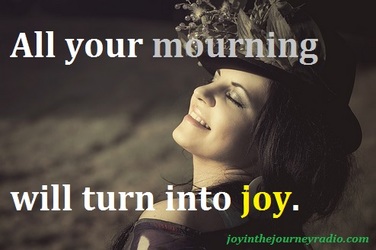 Last week I provided the key to changing our perspective. We need to believe the gospel — I mean, really believe it. We know God loves us, but when you truly believe it, you’ll have the confidence He’s constantly working on clearing the next best pathway to your blessings. We know God is all-knowing, all-powerful, etc., but when you truly believe He has His characteristics, you’ll walk in faith He’ll turn everything bad in your life into everything good. All your mourning will turn into joy. In truth, there is no Obi Wan. There’s never a last and only chance for eternal happiness. God loves you so much He’ll never stop providing you with opportunities to secure your blessings. You just need to set your thinking straight. You need to see the opportunities instead of the obstacles. You need to believe what you know is true. And you need to start doing the right things. The sooner you get on that train, the sooner you’ll savor the joy you can have in life.  Last week I extolled our need to choose Christ when life takes unanticipated turns. No matter how bereft or lost you may feel, Christ can transform your life into something meaningful and joyful. Part of that transformation involves your sense of identity. Although many LDS singles know in their mind they’re children of God, many of them have yet to know that truth in their heart. And getting to that deeper level is essential to weathering the storms of LDS singles life with joy in our journey. For example, many LDS singles see themselves and others through the lens of circumstance. Most people, single or married, do this habitually because others’ actions teach them so to act. Yet the perspectives embodied in many of these actions serve more to hinder our progression towards eternal goals than to help. Christ offers ennobling perspectives. To gain those, we need to choose to think in new and different ways. And that means seeing ourselves and others with greater clarity. You are not your body  Everyone knows how your body is shaped or groomed isn’t the real you. Yet many LDS singles — men and women — use physical appearance to filter who they befriend and date. These actions clearly communicate you must be attractive to be loved. And many of us feel very unloved. Of course, most prefer interactions with physically attractive people. Improving your physical appearance can increase your chances of having the interactions you want. But people are also hardwired to respond positively to a great attitude. I’m always inclined to know more about someone who displays generosity and cheerfulness towards me. You are not your body. You are the character you choose to embrace. You are not your job  It amazes me how some singles accept not getting to know someone who happens to be unemployed. That’s like saying it’s OK to divorce a spouse who loses a job. “What? You lost your job? Well, time to find someone else. See ya!” That’s absolutely ridiculous. And yet many of us have no qualms about filtering others with that ridiculous standard. Those actions clearly communicate you must be occupationally successful to be loved. And many of us feel very unloved. Of course, people typically prefer interactions with successful people. Improving your career can increase your chances of having the interactions you want. But people are also hardwired to respond positively to a great attitude. I’m always inclined to know more about optimistic people. You are not your job (or lack of one). You are the energy you choose to radiate. You are not your bank account  On a related note, many LDS singles use wealth to filter who they befriend and date. These actions clearly communicate you must be financially secure in order to be loved. And many of us feel very unloved. I can understand the allure of security, but it’s all facade. Marrying the right person can help us become who we need to become. That’s a life more fully lived than simply not having to worry about how to pay the bills. Of course, we all want to associate with successful people. Improving your financial situation can help you to have the interactions with others you want. But people are also hardwired to respond positively to a great attitude. I’m always inclined to know more about someone who sees the opportunities rather than the obstacles. So are others. My bank account has seen highs and lows, but the best romantic relationships of my life occurred during the lows, not the highs. That’s because my confidence, the confidence others find attractive, has nothing to do with my bank account. How I choose to approach life speaks volumes about who I really am. You are not your bank account. You are the confidence you choose to exhibit in your life. Stay firm  Not everyone will choose this perspective. That’s OK. Their use of traditional filters tells you exactly who they are, making it easier for you to filter them from your consideration. When high ideals inform your daily actions, it’s much easier for others to see and focus on your best you rather than any deficiencies. In short, it’s easier for you to succeed. It’s also a more enjoyable way to navigate LDS singles life. Improving how you think improves your approach to life. Making conscious choices to communicate and reinforce gospel ideals with your actions provides more joy in everyone’s journey. You can create a rich life through meaningful contribution. You are not your circumstances. If you think you are, reformat and reboot yourself. You are a child of God with infinite worth and potential. Start seeing that in yourself, and then others will be able to see that more clearly too.
|
Author
Howdy! I'm Lance, host of Joy in the Journey Radio. I've been blogging about LDS singles life since 2012, and since 2018 I've been producing a weekly Internet radio show and podcast to help LDS singles have more joy in their journey and bring all Latter-day Saints together. Let's engage a conversation that will increase the faith of LDS singles and bring singles and marrieds together in a true unity of the faith.
Comment
Joy in the Journey Radio encourages the free discussion of ideas but reserves the right to remove and/or block comments which do not conform to LDS standards.
Donate
Joy in the Journey Radio offers many free resources to help LDS singles everywhere, but it certainly isn't free! Help Joy in the Journey Radio in its mission to improve the lives of LDS singles by donating today.
Posts by Month
December 2022
Categories
All
|



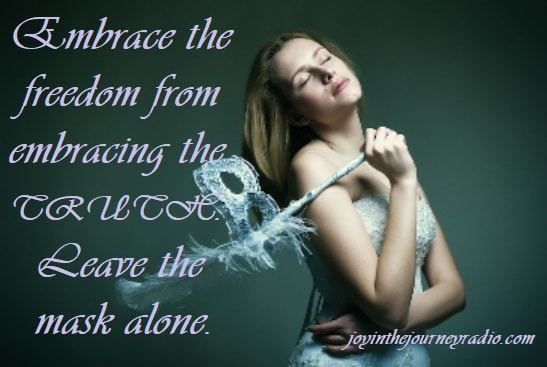


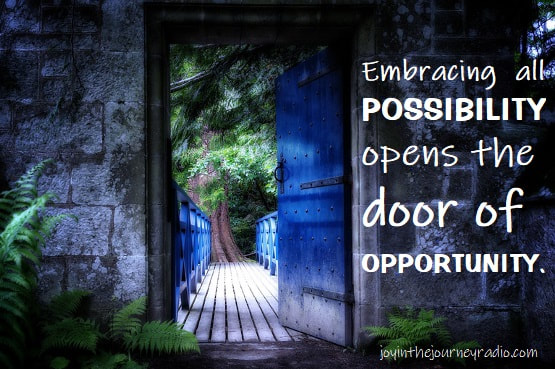
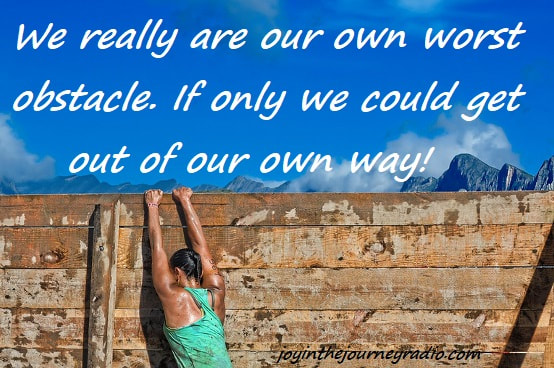
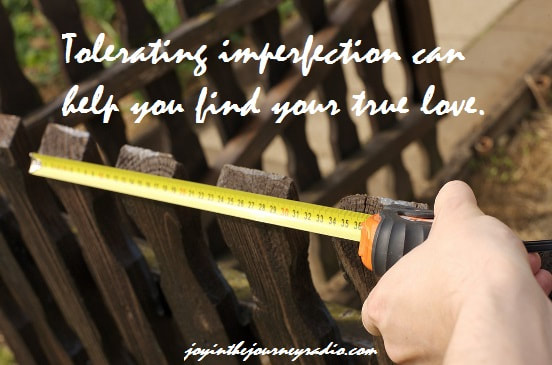
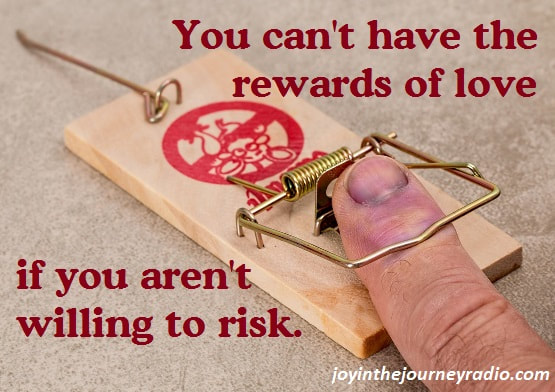
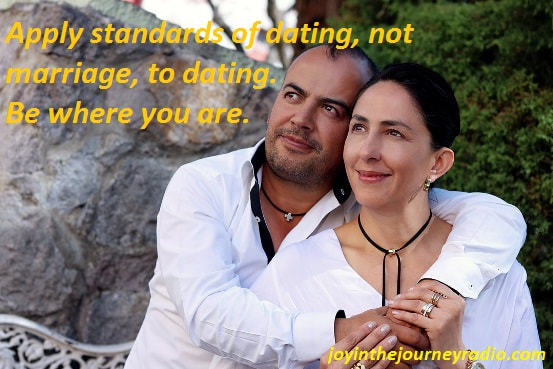

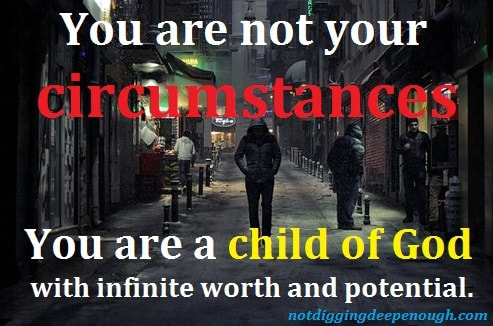
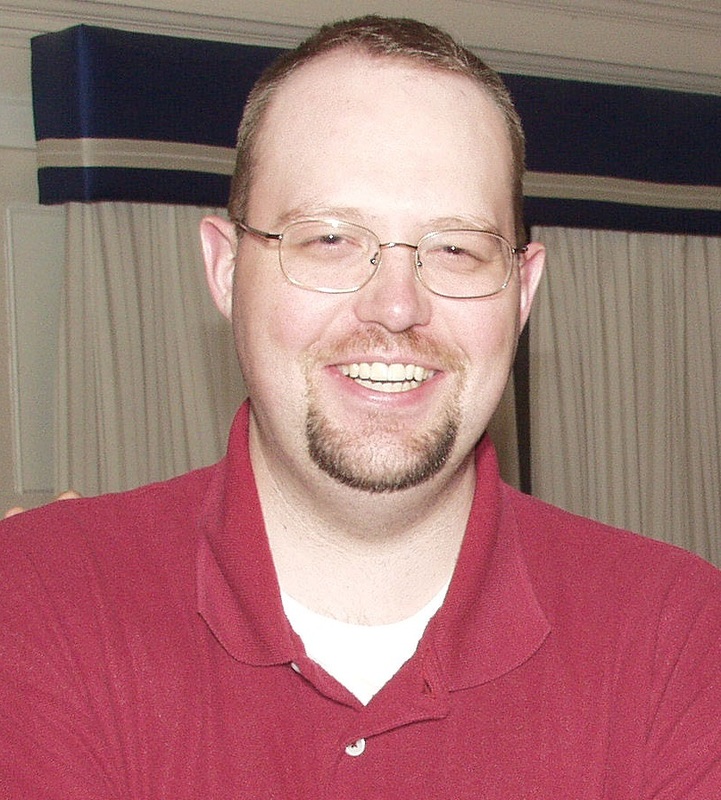
 RSS Feed
RSS Feed